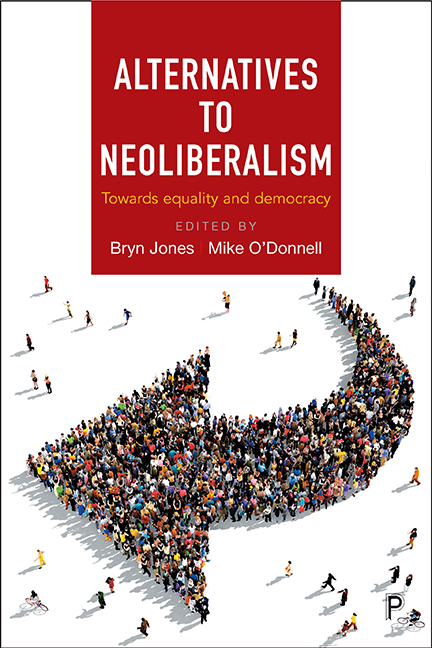Book contents
- Frontmatter
- Dedication
- Contents
- List of figures, tables and boxes
- List of abbreviations
- Notes on contributors
- Acknowledgements
- Foreword
- Editors’ preface
- Introduction: The open-market society and its opponents: an overview
- Part One Alternative paradigms and perspectives
- Part Two Reform within economic and governance restraints: pushing the boundaries
- Part Three Economic and political democracy: restoring the market-civil society balance
- Conclusion: A Brexit from neoliberalism?
- Index
six - The European Union and the UK: neoliberalism, nationalist populism, or a cry for democracy?
Published online by Cambridge University Press: 05 April 2022
- Frontmatter
- Dedication
- Contents
- List of figures, tables and boxes
- List of abbreviations
- Notes on contributors
- Acknowledgements
- Foreword
- Editors’ preface
- Introduction: The open-market society and its opponents: an overview
- Part One Alternative paradigms and perspectives
- Part Two Reform within economic and governance restraints: pushing the boundaries
- Part Three Economic and political democracy: restoring the market-civil society balance
- Conclusion: A Brexit from neoliberalism?
- Index
Summary
Introduction
The EU referendum result favouring British exit from the European Union threw up manifold and far-reaching economic and political consequences. The immediate aftermath of the poll does not allow accurate diagnoses of a still unfolding political phenomenon. However, we can examine already apparent aspects of the changing UK‒EU relationship for their relevance to the analysis of the neoliberal regime and plausible alternatives to it. The discussion below focuses on three specific questions: (1) What role has the EU so far played in supporting or moderating neoliberalism in the UK? (2) In post-referendum politics which of the politico-ideological movements ignited by the campaigns is likely to be most influential and will lead to the consolidation of either a new, possibly nationalistic populism or a more cosmopolitan and democratic movement? (3) How will these tendencies affect the neoliberal paradigm? They could maintain sufficient support for open markets and big business dominance or favour torsions of, or even transformations of, this paradigm and its institutions. Separation from the core of the EU's economy could push the UK towards an even more open economy and imbrocation in globalised economic relationships. Conversely a nationalistic, sovereignty ethos, or a democratic, cosmopolitan worldview could entail checks and reversals of market corporatism.
The chapter processes these questions in three stages. First we describe the changing character of the EU in relation to neoliberal governance and globalisation processes, as well as the crises in its economy and governance – of which the UK ‘Brexit’ phenomenon is one symptom. It pays particular attention to the extent to which EU leaders tried, for a while, to provide some social protection from market forces and also to the need for some democratisation of its core institutions. Then we analyse what the referendum campaigns might tell us about support for these contrasting principles. These issues are not merely of historic interest for the UK. As long as it maintains some economic relationship, the EU's institutions and political character will impact the survival, or otherwise of neoliberalism in this country. The third section tries to identify future scenarios for UK‒EU relationships. For example, a UK completely detached from the EU and therefore less able to connect to social movements for democratic equality in the Union. Another scenario considered is one in which the UK is semi-detached from Europe, but with little influence at the ‘top table’.
- Type
- Chapter
- Information
- Alternatives to NeoliberalismTowards Equality and Democracy, pp. 117 - 138Publisher: Bristol University PressPrint publication year: 2017



